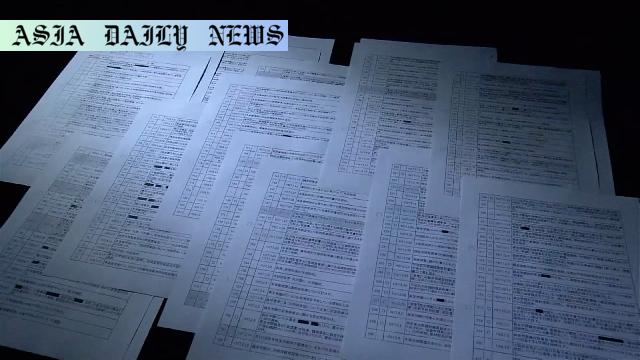Moritomo Scandal: Missing documents shed light on political connections in controversial land deal.

The Missing Documents in the Moritomo Scandal: A Breakdown
The Moritomo Scandal is back in the spotlight following the revelation by Japan’s Finance Ministry that 74 essential documents tied to a controversial land sale have gone missing. The case centers around Moritomo Gakuen, a school operator in Japan, which was controversially sold state-owned land at an astonishingly discounted price in 2016. The discounted sale immediately raised questions about political favoritism, particularly concerning possible ties to high-ranking political figures, including the wife of then-Prime Minister Abe Shinzo. This recent revelation adds a new layer of complexity to an already controversial case.
The Core of the Controversy: Missing Evidence
As per the Finance Ministry’s own disclosure, the missing documents were discarded during a “record-disposal process.” These included negotiation records, with key dates ranging from June 2013 to June 2016. Shockingly, 52 of these are confirmed never to have been made public. Among these pages were supposed references to interactions between Moritomo officials and political representatives. One particular document from April 28, 2014, confirmed that the former head of Moritomo Gakuen showed bureau officials a photo of himself with Prime Minister Abe’s wife. The claim was that Abe’s wife encouraged him to proceed with acquiring the “good piece of land.” This detail strongly links powerful political figures to the highly-questionable land dealings.
The Role of Akagi Toshio: Tragic Consequences
Akagi Toshio, a Finance Ministry employee, played a pivotal but ultimately tragic role in this saga. Toshio was reportedly forced to falsify documents related to the land sale—an action that would lead directly to his suicide in 2018. His widow, Masako Akagi, has since sought justice by demanding information disclosure and greater transparency. Efforts to uncover the truth have brought 2,200 pages of previously unreleased documents to light. However, these revelations have also exposed gaping holes in the records, fueling outrage and drawing further scrutiny on the government’s role in suppressing key details.
Political Implications & Public Fallout
The implications of the Moritomo Scandal extend far beyond missing documents. Early in the investigation, it was revealed that the government intentionally destroyed records to prevent parliamentary questioning. The scandal has driven criticism of Japan’s bureaucracy and political leadership, focusing on the relationship between special interest groups and top political figures. Evidence referencing Abe’s wife adds weight to arguments about systemic corruption—a theory gaining traction among the Japanese public. The revelation of missing documentation has severely damaged trust in public institutions, raising broader questions about accountability and government transparency.
Addressing the Gaps: Steps Toward Accountability
Transparency and accountability remain central concerns in addressing the public’s outrage over the Moritomo Scandal. While the Ministry of Finance has released thousands of pages of evidence, the admitted loss of 74 critical files undermines trust in government oversight. Calls for independent investigations are spreading, as critics argue that internal inquiries lack credibility. Moving forward, if Japan wishes to restore faith in the integrity of public institutions, thorough reforms and external investigations may be vital. These missing documents serve as chilling reminders of the potential for abuse of power in political systems.
Commentary
Reflecting on the Moritomo Scandal Revelations
The Moritomo Scandal is not just about missing documents; it strikes at the heart of government accountability and transparency in Japan. This controversy unearths numerous ethical questions about political influence and the role of public officials in masking potential improprieties. That the Ministry of Finance admitted to the loss of 74 essential pieces of evidence, many containing references to political figures, reveals significant flaws within the country’s bureaucratic processes. These incidents pose troubling questions about the accessibility of truth in such cases.
The Tragedy of Akagi Toshio: An Unforgettable Element
Among the many facets of this scandal lies the heartbreaking story of Akagi Toshio, a man pushed to his breaking point after being coerced into falsifying official documents. Akagi’s suicide is a stark reminder of the human cost of institutional failures and the weight of moral dilemmas faced by those within the system. His widow’s courage in pursuing justice amidst immense political pressure inspires admiration but also magnifies the tragedy’s emotional depth.
Long-Term Ramifications for Japan’s Political Landscape
Moving forward, the revelation of missing documents risks undermining public trust in government institutions. The scandal demonstrates the dangers of unchecked political influence and a lack of internal accountability mechanisms. Japan now faces a critical juncture: will it enact systemic reforms to prevent future occurrences, or will this become another chapter in the nation’s political controversies without resolution? The coming years will determine the legacy of the Moritomo Scandal and whether its lessons are heeded.


